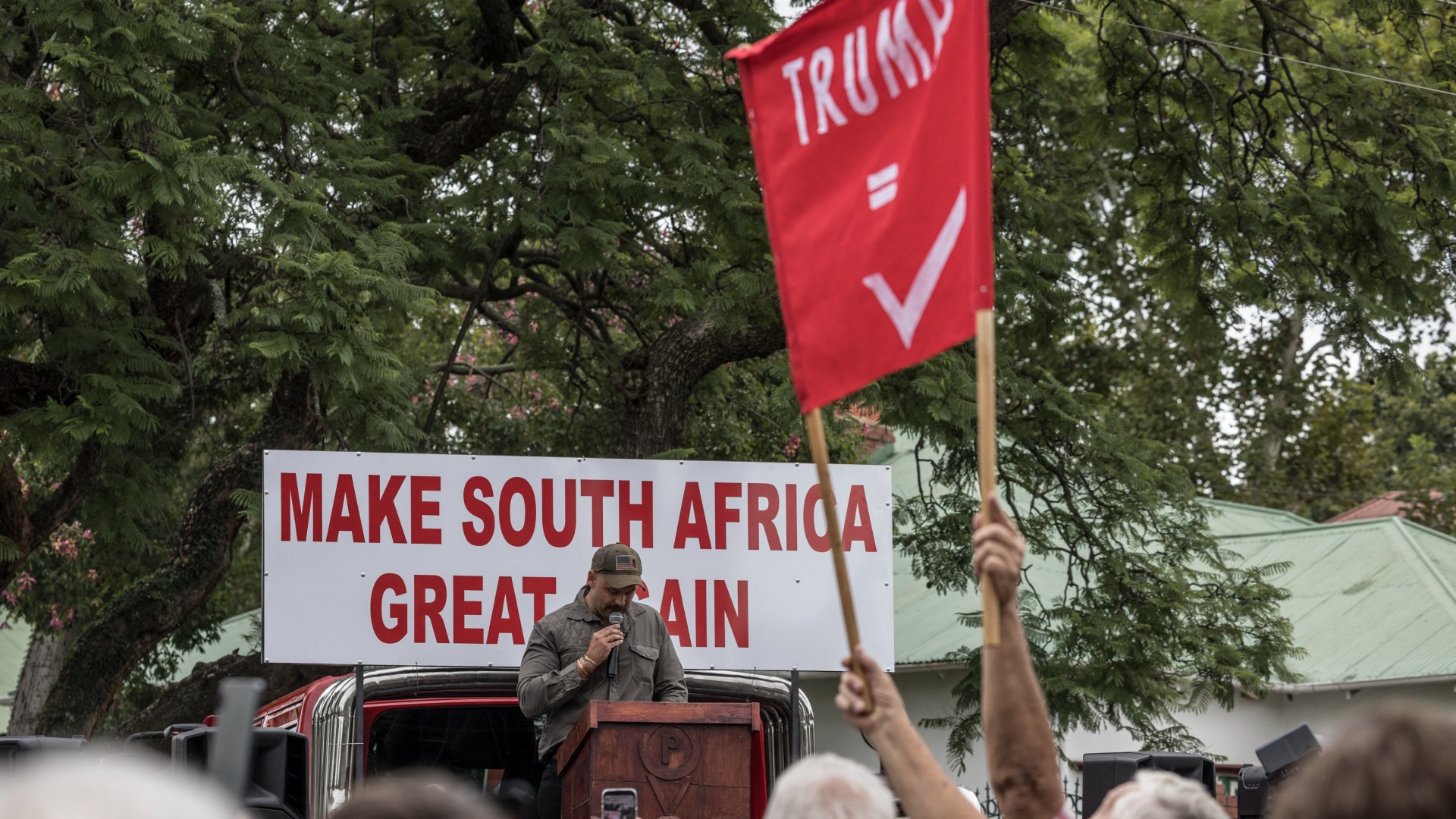US grants dozens of white South Africans refugee status

At least 54 white South Africans have been granted refugee status in the US and will be arriving this month, NPR reported on Thursday.
The news comes almost four months after the US suspended the country’s refugee resettlement programme, leaving 12,000 vulnerable people in limbo who had been conditionally approved for resettlement and had flights booked before 20 January, as well as almost 90,000 others who had been approved for resettlement.
A court order this week directed the government to start processing the 12,000 people who had booked their flights before 20 January.
The Afrikaan South Africans, or Afrikaners, are white descendants of largely Dutch people who colonised the country and are expected to arrive on 12 May, NPR reports.
US authorities are reportedly trying to charter a flight to Dulles Airport near Washington DC for the newest refugees, but it is currently unclear whether they will be allowed to land there or if they will have to travel on commercial flights.
New MEE newsletter: Jerusalem Dispatch
Sign up to get the latest insights and analysis on Israel-Palestine, alongside Turkey Unpacked and other MEE newsletters
NPR also reported that a press conference would be scheduled at the airport and the Afrikaners would be welcomed by “high level officials from the Departments of State and Homeland Security”.
Sources told NPR that it was unusual for officials to welcome refugees.
Why Afrikaners?
US vetting processes for refugees normally take 18 to 24 months, according to the State Department’s website. It is not clear why the Afrikaners’ cases were expedited.
In February, Trump signed an executive order enabling the government to grant refugee status to Afrikaners.
In the order, Trump claimed that Afrikaners were discriminated against after the South African government had enacted a law to “seize ethnic minority Afrikaners’ agricultural property without compensation”.
The order also said this law follows “countless government policies designed to dismantle equal opportunity in employment, education, and business, and hateful rhetoric and government actions fueling disproportionate violence against racially disfavored landowners”.
It also lambasted South Africa for taking a stand against the US at the International Court of Justice for its participation in funding and arming Israel in its war against Gaza, and accused South Africa of “reinvigorating its relations with Iran to develop commercial, military, and nuclear arrangements”.
While the South African government did sign into law a bill allowing land seizures by the state without compensation, the law was not universally supported.
The law allows for the expropriation of land without compensation only where it is "just and equitable and in the public interest" to do so.
This includes if the property is not being used and there's no intention to either develop or make money from it or when it poses a risk to people.
No land has been seized from white South Africans as of yet. Black South Africans only own a small percent of land in South Africa, more than 30 years after the racist system of Apartheid was ended.
Apartheid South Africa
Apartheid South Africa began dismantling in the early 1990s, with the country's first democratic election taking place in 1994, ushering in Nelson Mandela as the first post-Apartheid president of South Africa. Mandela was awarded the Nobel Peace Prize along with South African President Frederik Willem de Klerk for ending the Apartheid regime.
But while political power was transferred to the Black majority, economic power and land ownership were mainly left in white hands.
Thirty years later, a majority of Black South Africans remain largely impoverished, languishing without jobs, and often, without basic services.
While the gap between Black and white South Africans has narrowed ever so slightly, the gulf between rich and poor has swelled. The richest 10 percent own 85 percent of the wealth in the country.
White South Africans make up seven percent of the country and own much of the country's commercial land, they also dominate the upper echelons of corporate structures.
In 2022, South Africa's Commission for Employment Equity found that white South Africans occupied 65.9 percent of top management-level posts, whereas Black people occupied just 13.8 percent.
Today, South Africa is one of the most unequal countries on the planet, exemplifying the long-lasting legacy of Apartheid-era policies as well as the slow redistribution of wealth and economic power.
Despite the economic indicators suggesting otherwise, white South Africans continue to hold on to narratives of being subject to a "white genocide" in the country.
middleeasteye.net